Two years on, the EU still needs to address critical challenges for specialised nutrition
Legal uncertainties persist for certain specialised food categories, putting at risks the thousands of European consumers who rely on them
This month marks the second anniversary of the entry into force of the Regulation on Foods for Specific Groups. The so-called FSG Regulation protects specific groups of consumers – infants, people with medical conditions and people undertaking energy-restricted diets to lose weight – by regulating the composition and labelling of the foods specifically created for them. Some categories of specialised foods however remain inadequately protected – and two years on, uncertainties persist.
90% of Europeans will need to use specialised nutrition at some point in their lives. Making sure that they can access the right nutrition for their specific needs is paramount. “Specialised nutrition products are uniquely positioned to help people get the right nutrition for their particular needs because they are developed in collaboration with the consumers who rely on them, the healthcare professionals who recommend them and the scientists who develop them. In this context, specific EU rules for specialised nutrition are critical to boost consumer protection and industry innovation by ensuring harmonised standards across the European Single Market“, said Udo Herz, President of SNE, the voice of the specialised nutrition industry in Europe.
SNE welcomes the work achieved by the European Commission to date to protect the most vulnerable groups of consumers under the FSG Regulation.
Current EU developments are however putting at stake some categories of specialised nutrition. The lack of specific consideration on specialised nutrition in the EU legislation will ultimately lead to a lower level of protection for European consumers across the board, as specialised nutrition products play an important role in tackling societal challenges such as rising rates of obesity, malnutrition, or food allergies.
This is why the European Union must take its responsibility and provide a policy framework that recognises the role of all specialised nutrition products and enables European citizens to access, identify and safely use the foods specially formulated for their specific needs. SNE counts on the ongoing “Stocktaking of the Commission’s ‘better regulation’ approach” to improve the status of specialised nutrition across the EU.
For more information:
Notes to editors:
- Specialised Nutrition Europe (SNE) is the trade association representing the interests of the specialised nutrition industry across the European Union. SNE members are the national associations of 18 Member States and their members are the companies producing tailor made dietary solutions for populations with very specific nutritional needs including infants and young children, patients under medical supervision, sportspeople, overweight and obese consumers, and those suffering from coeliac disease.

